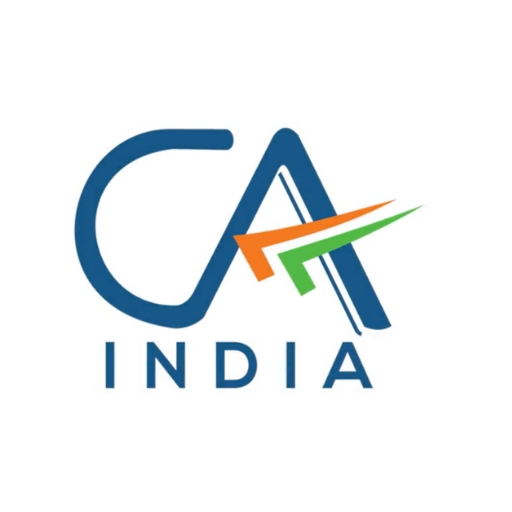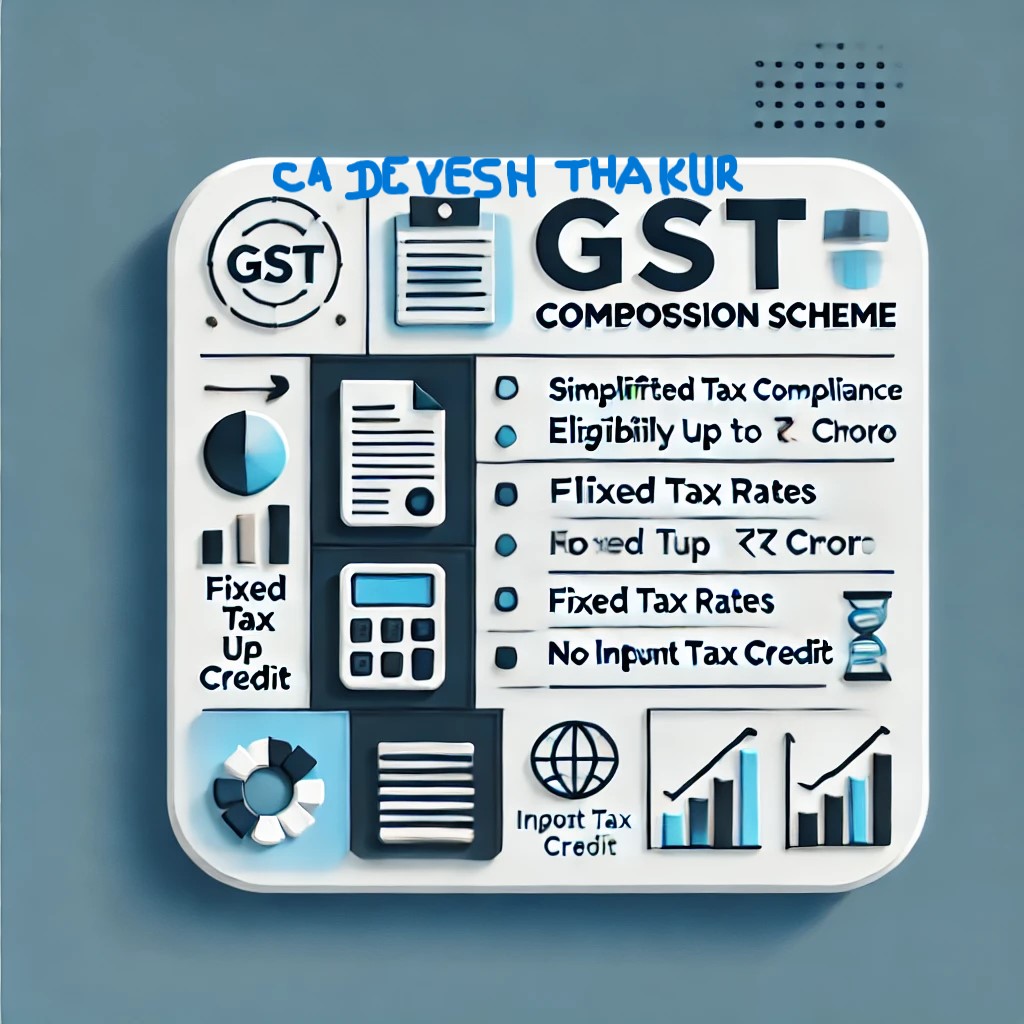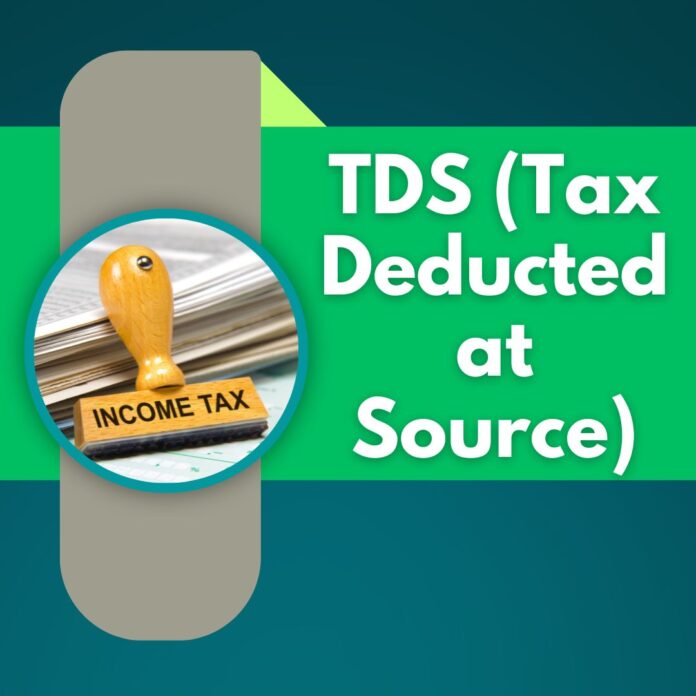1. Objective
– The primary purpose of the Composition Scheme is to reduce the compliance burden for small businesses. Under Section 10 of the Central Goods and Services Tax Act, 2017 (CGST Act), eligible taxpayers can pay GST at a fixed rate based on their turnover. This scheme simplifies compliance by eliminating the need to maintain extensive records, file multiple returns, and undertake complex tax computations, ultimately minimizing compliance costs.
2. Eligibility Threshold
– As per Section 10(1) of the CGST Act, businesses with an aggregate turnover of up to ₹1.5 crore in the preceding financial year are eligible to opt for the Composition Scheme. However, for special category states, as specified in Article 279A(4)(g) of the Constitution, the threshold limit is reduced to ₹75 lakh. Special category states include Arunachal Pradesh, Manipur, Meghalaya, Mizoram, Nagaland, Sikkim, Tripura, and Uttarakhand.
3. Aggregate Turnover Definition
– According to Section 2(6) of the CGST Act, aggregate turnover is the sum of the value of:
– Taxable supplies
– Exempt supplies
– Exports of goods or services
– Inter-state supplies of persons with the same Permanent Account Number (PAN), calculated on an all-India basis.
– It excludes taxes like central tax, state tax, union territory tax, integrated tax, and cess. This comprehensive definition ensures that the turnover is calculated consistently across entities.
4. Inclusion of Interest Income
– As specified in Notification No. 1/2018 – Central Tax, interest income from deposits, loans, or advances is not included in the calculation of aggregate turnover for determining eligibility. This provision ensures that non-operational income does not unfairly impact the eligibility of small businesses under the scheme.
5. Tax Rates
– The fixed rates of tax payable under the Composition Scheme are:
– Manufacturers: 1% of turnover in the state or union territory (Section 10(1)(a) of the CGST Act).
– Traders (Dealers): 1% of taxable turnover in the state or union territory (Section 10(1)(b)).
– Restaurants (not serving alcohol): 5% of turnover (Section 10(1)(c)).
– Other Service Providers: 6% of turnover for eligible service providers with turnover up to ₹50 lakh, as per Notification No. 2/2019 – Central Tax (Rate).
6. Ineligibility Criteria
– Businesses cannot opt for the scheme if they are:
– Engaged in the supply of services other than restaurant services, with some exceptions (Section 10(2)(a)).
– Making inter-state outward supplies of goods or services (Section 10(2)(c)).
– Making supplies through e-commerce operators who are liable to collect tax at source under Section 52.
– Manufacturers of notified goods like ice cream, pan masala, and tobacco products (Notification No. 8/2017 – Central Tax).
7. Service Provision Allowance
– Composition taxpayers are allowed to supply services up to 10% of their turnover in the preceding financial year or ₹5 lakh, whichever is higher (Section 10(1)). This provision ensures that businesses providing incidental services are not disqualified.
8. No Input Tax Credit (ITC)
– Under Section 10(4) of the CGST Act, composition dealers are not permitted to claim ITC on their purchases. This restriction ensures that the simplicity of the scheme is maintained, and composition dealers operate on a value-added tax mechanism.
9. Tax Invoice Restrictions
– Composition dealers cannot issue a tax invoice under Section 31 of the CGST Act. Instead, they must issue a Bill of Supply as per Rule 49 of the CGST Rules, 2017, since they are not authorized to collect tax from their customers.
10. Tax Collection Prohibition
– As per Section 10(4), composition dealers are not allowed to collect GST from their customers. This means that the tax liability is absorbed by the dealer, and the cost cannot be passed on to the consumer.
11. Return Filing
– Composition taxpayers are required to file quarterly returns in Form CMP-08 by the 18th of the month following the quarter and an annual return in Form GSTR-4 by 30th April of the next financial year. This reduced filing requirement (Section 39(2)) simplifies compliance compared to regular taxpayers who file monthly returns.
12. Payment of Tax
– Tax payments must be made quarterly, with the due date being the 18th of the month following each quarter (Section 10(2) and Rule 62 of the CGST Rules, 2017).
13. Reverse Charge Mechanism (RCM)
– Under Section 9(3) and 9(4) of the CGST Act, composition dealers are required to pay tax under RCM on specified categories of goods and services. However, they cannot claim ITC on such tax paid, making them liable for these taxes out of pocket.
14. Stock Purchase Restrictions
– Composition dealers should avoid purchasing goods from unregistered suppliers. If they do, they are obligated to pay tax under RCM (Section 9(4)). This provision is in place to ensure tax accountability across the supply chain.
15. Transition to Regular Scheme
– If the aggregate turnover exceeds the prescribed threshold during the financial year, the dealer must switch to the regular GST scheme from the day the turnover exceeds the limit (Section 10(3)). They must comply with all regular provisions, including issuing tax invoices and filing monthly returns.
16. Multiple Business Verticals
– If a taxpayer operates multiple business verticals under the same PAN, they must either apply the Composition Scheme to all business verticals or none (Section 10(2)). This ensures consistency in tax treatment across different business segments.
17. Display Requirements
– As per Rule 5 of the CGST Rules, 2017, every composition dealer must prominently display the words “composition taxable person” on all signboards and notices at their principal and additional places of business. This informs customers about the nature of the tax liability.
18. Bill of Supply Notation
– The phrase “composition taxable person, not eligible to collect tax on supplies” must be clearly mentioned at the top of the Bill of Supply issued (Rule 49 of the CGST Rules, 2017). This ensures transparency in dealings with customers.
19. Voluntary Opt-Out
– Dealers can choose to exit the Composition Scheme voluntarily by filing Form GST CMP-04. They must comply with all provisions applicable to regular taxpayers upon opting out.
20. Penalty for Ineligibility
– If a dealer is found to have opted into the Composition Scheme inappropriately, they must pay taxes as per the regular GST scheme and may face penalties under Section 73 or 74, depending on the nature of the violation.
21. Casual and Non-Resident Taxable Persons
– Section 2(20) and 2(77) of the CGST Act specify that casual taxable persons and non-resident taxable persons are not eligible for the Composition Scheme. This exclusion is due to the transient nature of their operations.
22. Inter-State Supply Prohibition
– Composition dealers are prohibited from making inter-state outward supplies of goods or services (Section 10(2)(c)). This restriction is in place to limit the scheme to local transactions and simplify tax administration.
23. E-commerce Restrictions
– Taxpayers who supply goods or services through e-commerce operators liable to collect tax at source under Section 52 cannot opt for the Composition Scheme. This ensures that e-commerce transactions are tracked and taxed appropriately.
24. Manufacture of Notified Goods
– Manufacturers of certain goods like ice cream, pan masala, and tobacco products are ineligible for the scheme (Notification No. 8/2017 – Central Tax). This restriction prevents high-revenue and sin goods from benefiting from the simplified scheme.
25. Compliance Simplification
– The scheme simplifies compliance by reducing the number of returns and minimizing record-keeping requirements. Composition dealers benefit from fewer formalities, thus allowing them to focus more on their core business activities.
Example of a Business under the GST Composition Scheme
Scenario: Imagine a small trader named ABC Enterprises, operating in Delhi, engaged in selling electronic accessories. The business owner, Mr. Ravi Kumar, has opted for the GST Composition Scheme for the financial year, given that his annual aggregate turnover in the previous financial year was ₹1.2 crore. Let’s break down the key aspects, impacts, and compliance obligations for ABC Enterprises:
1. Eligibility and Aggregate Turnover
- ABC Enterprises qualifies for the Composition Scheme as their aggregate turnover (₹1.2 crore) is under the ₹1.5 crore threshold.
- Aggregate Turnover Calculation:
- Taxable supplies: ₹1.0 crore
- Exempt supplies: ₹20 lakh (includes some exempt goods)
- Interest income from bank deposits: ₹10 lakh (this is not included in the aggregate turnover calculation as per the provisions).
- Total Aggregate Turnover Considered: ₹1.2 crore (excluding interest income)
2. Fixed Tax Rates and Tax Liability
- As a trader, ABC Enterprises is liable to pay tax at 1% of its taxable turnover within the state.
- Tax Calculation:
- Taxable turnover: ₹1.0 crore
- GST payable: 1% of ₹1.0 crore = ₹1 lakh
3. Compliance: Filing Form CMP-08
- ABC Enterprises needs to file Form CMP-08 quarterly to report tax liability and make tax payments.
- Filing Deadlines: CMP-08 must be filed by the 18th of the month following the quarter.
- Example:
- For Q1 (April to June), tax liability = ₹25,000 (since tax is paid quarterly: ₹1 lakh annual liability ÷ 4 quarters)
- CMP-08 for Q1 is filed by 18th July, and the tax of ₹25,000 is paid along with the filing.
4. Annual Return: Filing Form GSTR-4
- At the end of the financial year, ABC Enterprises must file Form GSTR-4, an annual return, by 30th April of the following year.
- Details to be Reported in GSTR-4:
- Total turnover, including taxable and exempt supplies.
- Details of inward supplies and tax paid under RCM.
- Adjustments and summarization of quarterly tax payments made via CMP-08.
5. Impact of the Composition Scheme on ABC Enterprises
- Simplified Tax Compliance:
- Filing requirements are reduced, with only quarterly CMP-08 and annual GSTR-4 returns.
- No Input Tax Credit (ITC):
- ABC Enterprises cannot claim ITC on any GST paid on purchases, which may increase the overall cost of goods sold compared to regular taxpayers who can claim ITC.
- Restrictions on Tax Invoice:
- Must issue a Bill of Supply instead of a tax invoice, clearly stating, “composition taxable person, not eligible to collect tax on supplies.”
- Tax Collection Prohibition:
- Cannot collect GST separately from customers. The GST paid is absorbed in the cost structure.
6. Reverse Charge Mechanism (RCM)
- If ABC Enterprises makes any purchases liable to RCM, such as transportation services, they must pay GST under RCM and cannot claim ITC for this payment.
7. Example of Compliance Calendar for ABC Enterprises
- Quarter 1 (April – June):
- File CMP-08 by 18th July; pay ₹25,000.
- Quarter 2 (July – September):
- File CMP-08 by 18th October; pay ₹25,000.
- Quarter 3 (October – December):
- File CMP-08 by 18th January; pay ₹25,000.
- Quarter 4 (January – March):
- File CMP-08 by 18th April; pay ₹25,000.
- Annual Return:
- File GSTR-4 by 30th April of the following year, summarizing all transactions and tax payments.
8. Impact Summary
- Compliance Burden: Reduced compared to regular GST filers, but still requires timely submission of CMP-08 and GSTR-4.
- Cost Implications: Higher cost base as no ITC is available, and GST is absorbed in pricing.
- Transparency: Simplifies customer transactions by removing GST from the invoice, but requires clear communication that GST is included in the sale price.
This example illustrates how a small business like ABC Enterprises manages compliance under the GST Composition Scheme, balancing simplified processes with some limitations, such as the inability to claim ITC.




